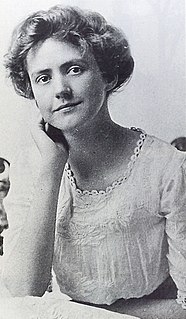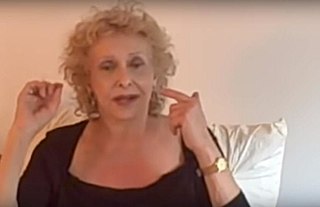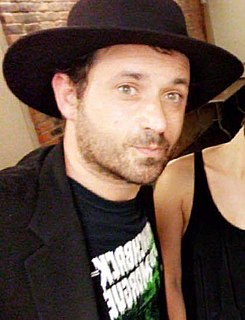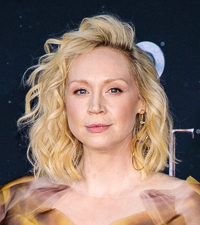Top 93 Woolf Quotes & Sayings - Page 2
Explore popular Woolf quotes.
Last updated on April 21, 2025.
For pain words are lacking. There should be cries, cracks, fissures, whiteness passing over chintz covers, interference with the sense of time, of space ; the sense also of extreme fixity in passing objects ; and sounds very remote and then very close ; flesh being gashed and blood sparting, a joint suddenly twisted - beneath all of which appears something very important, yet remote, to be just held in solitude.” — Virginia Woolf, The Waves
I admire Virginia Woolf so much that I wonder why I don't like her more. She makes the inner things real, she does illumine, and she makes relationships realities as well as people. But I remember the intensity, the thrill, with which I read 'Passage to India.' How I would have hated anyone who took the book away from me.
I learned to write from reading. I had no writing classes. It's part of my thinking as the writer-author, reading, but then I also want to bring this into my characters, who also read and think. There's that great quote from Virginia Woolf - it's very simple: "...books continue each other." I think when you're a writer, you're also, hopefully, a reader, and you're bringing those earlier works into your work.
In the end I created a career of my own, concentrating on my writing and lecturing, reaching larger audiences than I would had I ended up with tenure and a full teaching load. It was Virginia Woolf who said that it is terrible to be frozen out of a sacred tradition - but even more terrible to be frozen into it.
Virginia Woolf thought a lot about her own sex when she wrote. In the best sense of the word, her writing is very feminine, and by that I mean that women are supposed to be very sensitive to all the sensations of nature, much more so than men, much more contemplative. It's this quality that marks her best works.
I think there's much more privileging of the new in art. I think people want to think they privilege the new in writing, but I agree with Virginia Woolf. She wrote a great essay called "Craftsmanship" about how difficult it is to use new words. It's really hard, but you see them coming in because obviously, if you're going to write... I mean, even to write "cell phone" in a novel - it's so boring.
My teachers always said, "You're very talented, but don't set your heart on art. You're only a girl." I was inspired by Virginia Woolf in 1960, but they wouldn't let me write about her. They said she was a trivializer. I also wanted to do a paper on Simone de Beauvoir, and my philosophy teacher said, "Why would you write about the mistress? Write about the master." That was Sartre.
I usually have more than one thing I'm working on at once -- I've been working on three different novels. When I get stuck on one, I hop back and forth. It's sort of freeing: I can say I'm abandoning this thing that I hate forever and I'm moving on to something that's good. I'll find that I'll go back to [the other project] in a day or a week and like it again. But that moment of wanting to trash something -- that Virginia Woolf moment when you have to be stopped from filling your pocket with stones -- comes pretty regularly for me. Switching is probably a good thing.
My parents took me to see plays, starting from when I was very little. Oftentimes, I was too young to understand. I don't know what my parents were thinking - 'Who's Afraid of Virginia Woolf' when I was eight years old, that kind of thing. So lots of times, I didn't understand what was going on, but I just loved the sound of dialogue.
Virginia Woolf wrote, "Across the broad continent of a woman's life falls the shadow of a sword." On one side of that sword, she said, there lies convention and tradition and order, where all is correct. But on the other side of that sword, if you're crazy enough to cross it and choose a life that does not follow convention, "all is confusion." Nothing follows a regular course. Her argument was that the crossing of the shadow of that sword may bring a more interesting existence to a woman, but you can bet it will be more perilous.
Needless to say, the business of living interferes with the solitude so needed for any work of the imagination. Here's what Virginia Woolf said in her diary about the sticky issue: "I've shirked two parties, and another Frenchman, and buying a hat, and tea with Hilda Trevelyan, for I really can't combine all this with keeping all my imaginary people going.
Plot involves fragmentary reality, and it might involve composite reality. Fragmentary reality is the view of the individual. Composite reality is the community or state view. Fragmentary reality is always set against composite reality. Virginia Woolf did this by creating fragmentary monologues and for a while this was all the rage in literature. She was a genius. In the hands of the merely talented it came off like gibberish.
After college, I went on a real big classics kick. Read everything by Faulkner, Hemingway, Woolf, Proust, Dostoevsky. And that classics train dropped me off at 'Dracula.' Halfway through it, I understood I'd never be going back, never 'leaving' the genre again. Since then, I've been on a fairly strict horror diet.
Insofar as I think about postmodernism at all, and it doesn't exactly keep me awake at nights, I think of it as something that happens to one, not a style one affects. We're postmoderns because we're not modernists. The modernist writers?Pound, Eliot, Joyce, Stevens, Yeats, Woolf, Williams?spoke with a kind of vatic authority: they were really the last of the Romantics, for whom authorship itself was like being a solitary prophet in the wasteland.
I don't think there is a 'gay lifestyle.' I think that's superficial crap, all that talk about gay culture. A couple of restaurants on Castro Street and a couple of magazines do not constitute culture. Michelangelo is culture. Virginia Woolf is culture. So let's don't confuse our terms. Wearing earrings is not culture.
Throughout much of history, women writers have capitulated to male standards, and have paid too much heed to what Virginia Woolf calls "the angel in the house." She is that little ghost who sits on one's shoulder while one writes and whispers, "Be nice, don't say anything that will embarrass the family, don't say anything your man will disapprove of ..." [ellipsis in original] The "angel in the house" castrates one's creativity because it deprives one of essential honesty, and many women writers have yet to win the freedom to be honest with themselves.
When I saw what painting had done in the last thirty years, what literature had done - people like Joyce and Virginia Woolf, Faulkner and Hemingway - in France we have Nathalie Sarraute - and paintings became so strongly contemporary while cinema was just following the path of theater. I have to do something which relates with my time, and in my time, we make things differently.
At Princeton I wrote my junior paper on Virginia Woolf, and for my senior thesis I wrote on Samuel Beckett. I wrote some about "Between the Acts" and "Mrs. Dalloway'' but mostly about "To the Lighthouse." With Beckett I focused, perversely, on his novels, "Molloy," "Malone Dies," and "The Unnamable." That's when I decided I should never write again.
Patrick Swayze was in an acting class with me. We were working on Who's Afraid Of Virginia Woolf together, and there was this beautiful blonde who was playing Honey - and I'm playing loudmouthed Martha - and she was so gorgeous, and the two guys were flirting and having fun with her, and so I started crying. Buddy came over and said, "Don't you know that you're beautiful? Don't you know that these women are beautiful?" It meant so much to me, because he was already sort of a star.
A middle-aged woman who looked like someone's cleaning lady, a shrieking adolescent lunatic and a talkshow host with an orange face... It didn't add up. Suicide wasn't invented for people like this. It was invented for people like Virginia Woolf and Nick Drake. And Me. Suicide was supposed to be cool.
I got into dialogue because my parents began taking me to see plays from when I was very young. Too young, often, to understand the play I was watching: Who's Afraid Of Virginia Woolf when I was nine years old; That Championship Season when I was ten years old. But I loved the sound of dialogue; it sounded like music to me and I wanted to imitate that sound.
Obviously, everything has always been defined by the dominant ideology. But the dominant ideology has been able to accept women's literature as well as men's literature. I would say that women have been hindered from creating for a variety of reasons, as Virginia Woolf so admirably explained in A Room of One's Own. When they have created, on the whole they have been recognized. In literature it hasn't been nearly as oppressive as in, say, painting, where even the existence of so many women painters has always been denied.


























